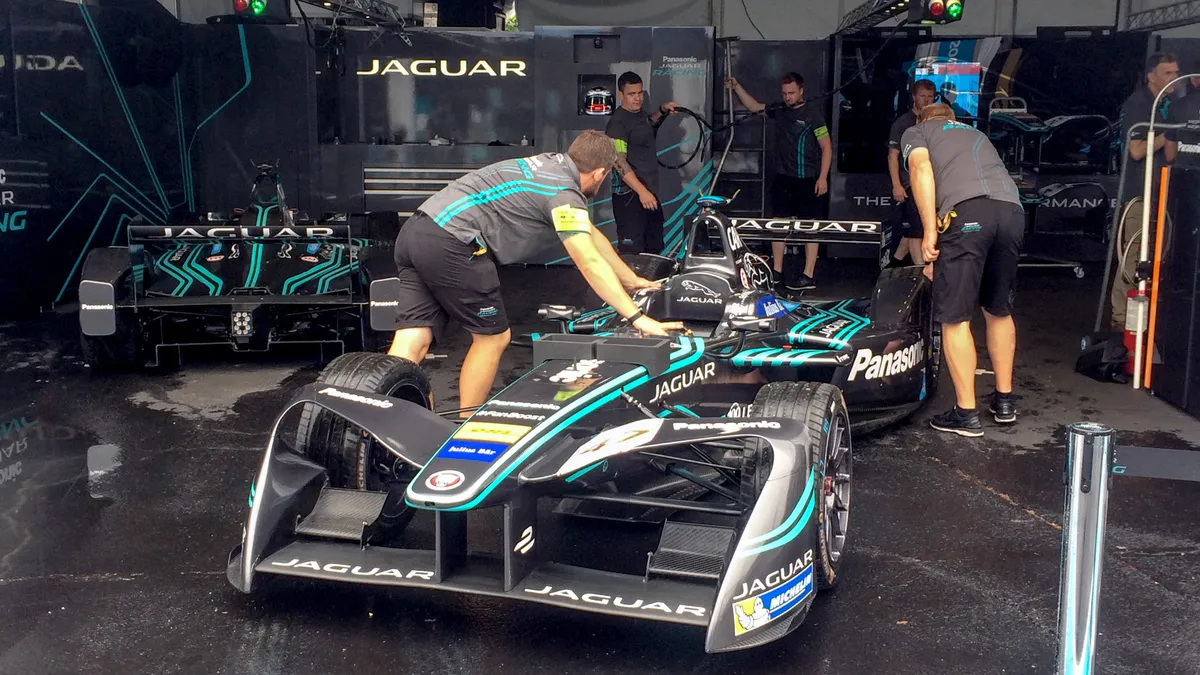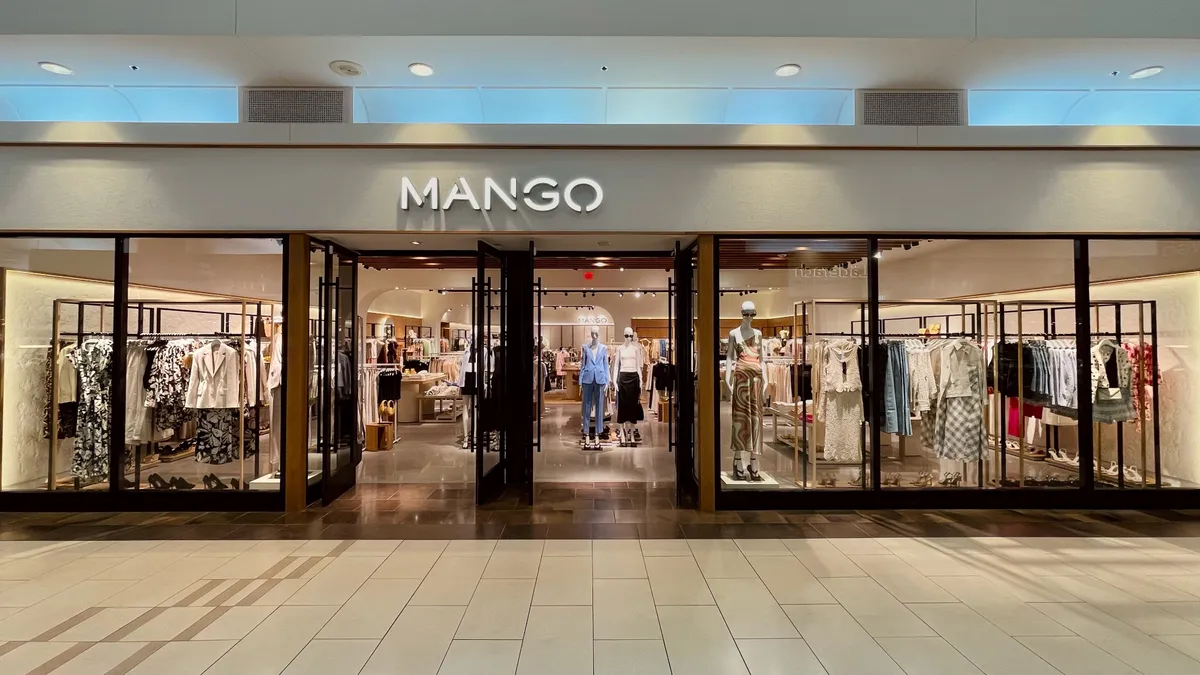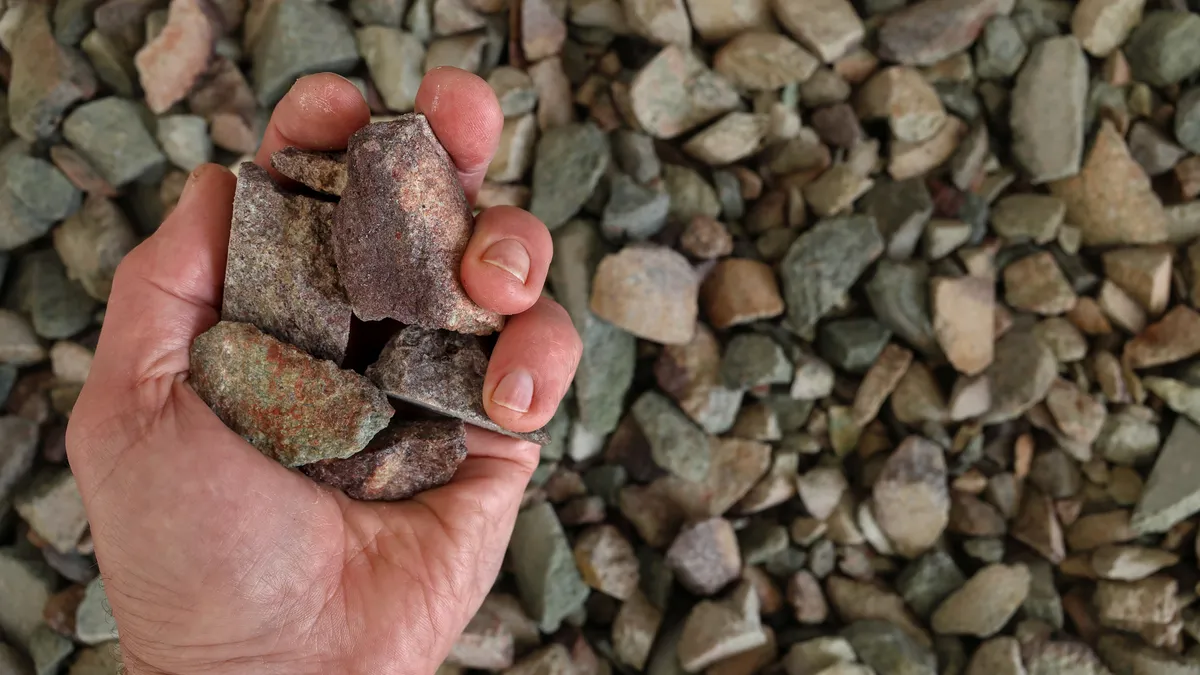DHL CEO Ken Allen wants green energy and sustainability to be cool, and at the Formula E electric street race in Brooklyn, New York last week — the very first in the U.S. — he may have succeeded.
Thousands of spectators turned up to watch the sleek electric racing cars whip around a track at the Brooklyn Cruise Terminal as Formula E approaches the end of its most successful racing season to date. It’s not hard to see the appeal: the cars make a high-pitched whistling noise that sounds like a podracer from the Star Wars franchise, and the medical cars trailing the pack are completely silent, giving the races a very futuristic, sci-fi feel.
And that’s not the only draw: various exhibits at the racing event featured more electric cars, electric motorcycles, and the latest technological efforts by BMW and Qualcomm to improve sustainability within the auto industry. The event is new and exciting, and appeals to a diverse audience: those interested in cars, sports, the latest technological advancements, the sustainability and green energy movement and climate change.
DHL markets itself as “the logistics company for the world,” and as indicated by its partnership with Formula E, it takes that role very seriously and sees itself as a leader and a pioneer within the sustainability movement. According to a recent fact sheet and press release, DHL was the first company in the transportation industry to target reducing emissions by 30% by 2020 and reached its 2020 efficiency goal in 2016: four years ahead of schedule.
At a July 14 press conference before the electric street races, Allen called sustainable energy and e-commerce “the future of commerce,” and said one of DHL’s roles as the official logistics partner of Formula E is to bring awareness to climate change and the role of business in counteracting it.
The entertainment value of the races provides value to society.

Ken Allen
CEO of DHL
He challenged companies and individuals to brainstorm clear-sighted ideas and implement them to combat climate change, and said regulatory environmental protection would not be enough to take care of the planet.
“If all of us do our bit to make the world a better place, as a company and as an individual, then the regulation will fall into place,” he said.
But Allen also said he believes humans have a real chance at saving and protecting the planet.
“I think the world is in a much better place than the media and TV make it out to be,” he told reporters.
Allen believes DHL’s partnership with Formula E is helping and will help spread climate change awareness and inspire innovation.
“This entertainment value (of the races) provides value to society,” he said. “We thought, how do we make sure everyone watching gets the idea we’re contributing something to society? The more people that see the stuff and get excited about it, the more ideas they’re going to come up with to help us move forward.”
Formula E embodies the sustainability movement within the auto industry
Formula E, a class of auto racing that uses only fully electric-powered cars, began in 2012 when the president of Federation Internationale d’Autombile (FIA) — Jean Todt — wanted a project that would communicate the potential of sustainability within transportation to a mass audience. Formula E CEO Alejandro Agag then launched the electric car-racing event, believing that the entertainment value of the races would help spread awareness and spur others to innovate sustainable solutions.
I think the world is in a much better place than the media and TV make it out to be.

Ken Allen
CEO of DHL
“This is a two-way process — we don’t want to be bad neighbors, we want to deliver a very positive message of what sustainability and transportation could be,” Agag said, speaking to the new Brooklyn location for the races. “We’re creating a global network, taking one city at a time and one country at a time.”
But Formula E isn’t the only sustainability project DHL has sponsored. Earlier this year, the Delft University of Technology from the Netherlands — backed by DHL — designed and developed a Hyperloop pod that beat out 30 other teams to win Elon Musk’s Hyperloop Pod competition for SpaceX.
We’re creating a global network, taking one city at a time and one country at a time.

Alejandro Agag
CEO of Formula E
To Allen, sustainability is not just something to be pursued — it’s something he believes is achievable while also increasing supply chain efficiency, which is why DHL’s goal is to reach zero net emissions by 2050.
“Business is good,” he told reporters. “And e-commerce is driving massive growth. B2C is growing [globally] 25%. That’s a massive opportunity for all of us.”
DHL innovates to create more and better jobs
Allen told Supply Chain Dive that DHL’s plan is to “get our entire fleet fully electric.”
“The biggest problem the planet has is the burning of fossil fuels,” Allen told Supply Chain Dive in an interview. “The price of auto batteries are going down dramatically, and the concept of the electric plane is already there, and I think robotics is going to be big.”
Allen believes these technological advancements will free up better, more interesting jobs for humans. By allocating monotonous tasks and mundane jobs to robots, humans will be able to focus on higher things and more intellectually-stimulating jobs and tasks.
The biggest problem the planet has is the burning of fossil fuels.

Ken Allen
CEO of DHL
“I think a knowledge-based society is something we should aspire to,” he told Supply Chain Dive. “I’d love it if my kids were spending all their time thinking about innovation.”
As DHL continues testing the Parcelcopter, EffiBOT, Google glasses, and CubiCycle — an “electrically assisted delivery bike” for urban package delivery — to streamline its supply chain, Allen says the company will only continue to innovate aggressively and pursue sustainable solutions. Later this year, the first U.S.-based DHL Innovation Center will break ground in Chicago.
“I know it’s hard for some people to believe, but logistics companies are incredibly innovative,” Allen said.






















